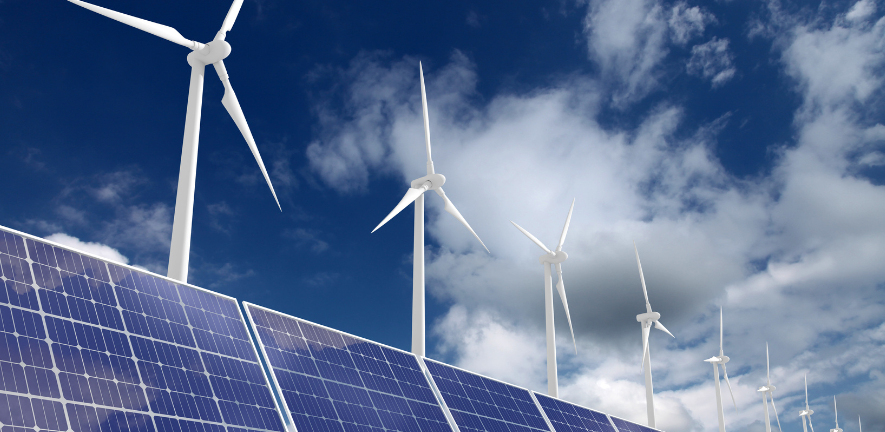
19 June 2025 - The EU has a strategic opportunity to set robust and aligned climate targets for 2035 and 2040 which, combined with a comprehensive and coherent framework, can support and catalyse business action and investments that accelerate clean energy deployment, enhance competitiveness and strengthen energy security, positioning Europe as a global leader in the transition to a climate neutral economy.
The European Union faces a crucial moment. This week, EU Climate and Environment Ministers met in Luxembourg to discuss COP30, the EU’s Nationally Determined Contribution (NDC) and the EU 2040 climate target.
On 2 July, the European Commission is due to present its amendment to the Climate Law, including an update to its 2040 target, and will subsequently release its next Nationally Determined Contribution (NDC), which will include a new emissions reduction target for 2035.
But these targets do far more than reduce emissions. By ensuring both the NDC and 2040 targets are robust, the EU can reap the wide-ranging benefits of clean energy solutions and drive industrial competitiveness, tech innovation, economic prosperity and energy security.
Our new report calls for policymakers and businesses to work together to deliver an NDC that puts the EU on track to become a clean technology and manufacturing powerhouse. Businesses have shown that they want a clear direction: A recent policy advocacy letter, signed by 150 companies and investors, calls on the EU to reduce greenhouse gas emissions at least 90% by 2040.
There must be consistency between the NDC for 2035 and the 2040 climate target to ensure that the EU economy decarbonizes at the pace required to reach climate neutrality by 2050, while reaping the economic benefits of early action.
If the EU responds with robust climate targets and well-designed policy frameworks, it can unlock a powerful business opportunity and help build a cleaner, more resilient and more secure Europe — one that is better prepared for a destabilized climate and no longer vulnerable to the volatility of fossil fuel imports.
Growing business momentum
Across EU member states, companies are already innovating and transforming their firms to compete in the new clean energy economy and build more resilient supply chains. Such actions make business sense, as they help companies achieve long-term competitiveness and stability and invest in their own strength amid a volatile geopolitical landscape, as well as bring down EU emissions.
Some 2,400 companies in the EU have set validated net-zero targets through the Science Based Targets initiative (SBTi), and leading companies are cutting emissions, while continuing to grow revenue and market share.
For example, IKEA decreased its climate footprint by 6.9 million tonnes of CO2 equivalent in 2023, a reduction of 22% compared to its 2016 baseline, while enjoying a fivefold increase in profits from 2022 to 2023.
To help companies like these meet their goals faster, the EU must set robust targets that set a clear direction, along with the policies to implement them. Policies that act to better align business incentives with climate goals are crucial — including a robust long-term carbon price.
One major way businesses will deliver on these targets is through a rapid transition away from fossil fuels to renewable-powered electricity, a strategy supported by 97% of business executives, according to a global poll commissioned by We Mean Business Coalition, E3G and Beyond Fossil Fuels.
Already, dozens of companies across the EU have committed to using 100% renewable electricity in their operations via the RE100 initiative, including 17 companies in Germany, 15 companies in France, and 10 companies in the Netherlands.
Across Europe, companies continue to find more innovative solutions to reduce emissions in ways that also contribute to Europe’s broader energy security and resilience:
- Sustainable construction company Holcim’s Go4ECOPlanet project at the Kujawy cement plant in Poland aims to become one of Europe’s first net-zero cement facilities, set to capture approximately 1.2 million tonnes of CO₂ annually and effectively neutralize its emissions.
- The Portugal-based electric utilities company EDP is actively investing in one of the first floating offshore wind farms in the world: In collaboration with the French electric utilities company Engie, EDP operates a 25-megawatt floating wind project off Viana do Castelo in Portugal.
- Electric truck and charging provider PragmaCharge is building and operating a heavy-duty electric truck charging hub at the Port of HaminaKotka in Finland, which is set to open this year.
On top of these actions, business voices matter for influencing policy making. More EU firms than ever continue to advocate for climate policies that unlock clean energy investment, making climate action more easily achievable and cost effective.
Investors and asset managers see the targets as keys to provide a coherent policy framework and sense of direction to increase the EU’s competitiveness and energy security and mobilize investments in clean technologies in Europe.
The EU’s opportunity for global leadership
The stakes couldn’t be higher, as tensions worldwide highlight the need to reduce dependence on imported fossil fuels.
The war in Ukraine brought into stark reality the volatility that comes from imported fossil fuels, with the need to disengage from Russian gas by 2027 destabilizing markets. By investing almost $110 in renewables in 2023, however, the EU has started to show what is possible as it strives toward a clean, energy-independent future.
Some of these actions have already made their mark, accelerating the transition from fossil to clean: Since 2019, clean energy production has allowed the EU to avoid €59 billion in fossil fuel imports.
Meanwhile the rest of the world has not been standing still. China has made impressive progress on renewable energy and electric vehicles — both domestically and across Southeast Asia, Africa and South America — helping to expand the country’s economic influence and secure additional resources for its own development.
As highlighted by climate ministers, an ambitious and science-based NDC is a condition for the EU to maintain its global leadership. This needs to be complemented by action at EU and international level.
Without it, the EU risks losing its competitiveness edge and global influence leaving itself more vulnerable. Aligning with the takeaways from the Environment Council, long-term certainty will provide businesses with the confidence to scale up investments and actions, allowing them to reap the competitiveness benefits of the green transition.
Internationally, the world faces trillions of dollars in climate damages, with global income losses from climate change reaching 19% by 2050, without international cooperation on climate.
What’s next
Businesses have already signalled support for the clean energy economy through their investments and actions. With clear, robust climate targets backed up by consistent plans and policies for delivery, EU leaders can continue this momentum.
The EU is on track to reduce greenhouse gas emissions 54% by 2030, according to a recent assessment of the National Energy and Climate Plans. While more efforts are needed, this shows that the EU can meet its targets, supported by enabling policy frameworks for businesses to deliver, and should continue this momentum beyond 2030.
By placing these targets at the center of its strategy to boost energy security and by giving businesses clarity, the EU can accelerate the deployment of cleaner energy, while creating a safer, more efficient and more secure energy future.






